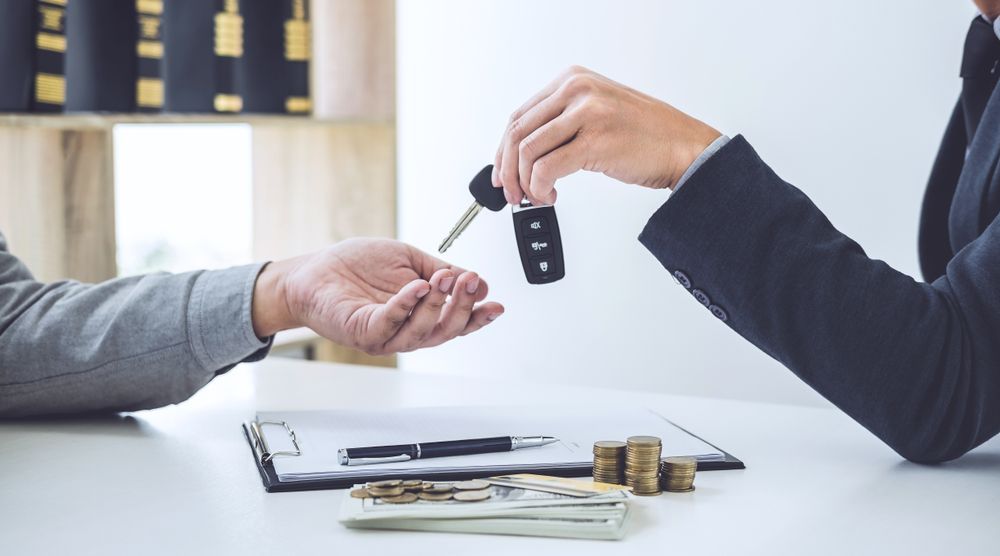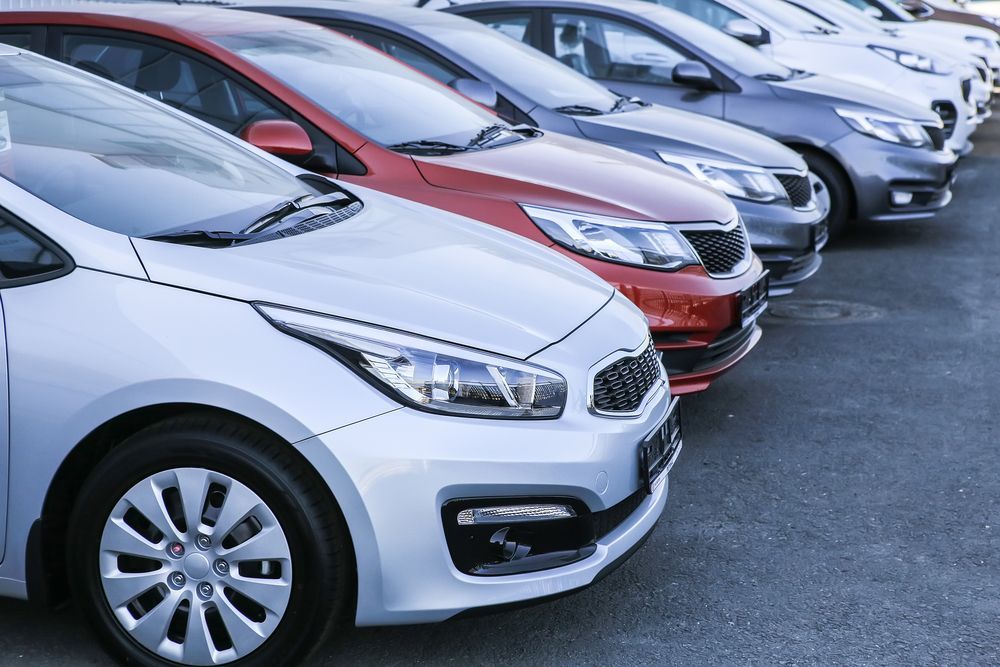
Buying a used car is oftentimes the most reliable way to ensure that you get the best value; this is most apparent when examining used models that are approximately 2 to 3 years old. In addition to being much for affordable then brand-new models, the expenses associated with taxation and collision insurance are also usually far more accommodating.
Generally speaking, a used automobile that is between 2 to 3 years old has already had the maximum depreciation applied. With enough patience, it is entirely possible to purchase a used car that actually surpasses a brand-new car in quality, for a fraction of the price.
The Motor Clearance used car buying guide can optimize your hunt for the perfect used car, no matter what particular kind of sale you may have in mind. Whether it’s a private purchase from a neighbor or a pre-owned purchase from a dealer, this compendium of the used car buying knowledge will help you know exactly what questions to ask for the answers that matter.
The Budgeting Process
First and foremost, it is essential to establish a concrete budget from the get-go. Without pre-establishing limits for how much you’re willing to pay, you’re liable to pay just about anything.
The objective of budgeting is not to specify just how much you are capable of spending. The number one priority is to determine the maximum amount that should be spent at all. The amount of money that you are capable of spending should never be synonymous with the amount of money that you are prepared to put down for a used car that you haven’t seen yet.
As a rule of thumb, it is a wise move to allocate no more than 1/5th of your monthly income towards monthly auto payments; though there may be exceptions to the rule, this is generally the most reasonable guideline.
Whenever you are thinking over the perspective price of your potential monthly auto payments, make a point to also consider the impact of all of your other essential monthly expenses such as rent, food, electrical bills, debt and basic utilities. The addition of a monthly auto payment to your necessary expenses should never cancel out your monthly income entirely.
In addition to the monthly auto payments and the expected cost of regular fueling, take care not to overlook the hidden costs in the equation. The depreciation rate, maintenance procedures, taxes/fees, and insurance rates will all carry their own financial weight. The cumulative financial weight of these hidden fees is even heavier than the price that you will pay just to get the keys in your hand.
Locking Down Your Exact Specifications
After determining an approximate figure on the most reasonable price that you are willing to spend on a used automobile of any make or model, you may begin to specify which particular type of used car would be the most feasible. The classification of “used car” can be broken down into more specific subcategories that are indicative of the used car’s condition.
A certified pre-owned (CPO) vehicle is a used car that has been inspected, refurbished, and certified as being up to an acceptable standard of condition. Be advised, however, that there can and often will be a wide range of variance in the quality standards of different CPO car purveyors.
Do not hesitate to inquire about the exact components of the car that were inspected, the reasoning behind any of the inspections that were made, and how the inspection directly benefits to you as the potential owner.
The other subcategory of used car is the second tier vehicle. Second-tier vehicles are generally manufactured by less popular brand names, though it is still possible for them to be perfectly reliable on the road.
The ultimate decision that you make on the exact type of used car that you decide to purchase should be based on the nature of your expected use of the car. Naturally, those with large families will have very different needs than those who don’t intend on having many passengers. Just as with the budgeting process, it is essential to rationally differentiate between the features that you can have and the features that you genuinely need to have.
Examining Used Car Options
Once you have confidently locked down your budgeting parameters to a range that is realistic and reasonable, you can begin to examine your options for used cars more securely.
One of the most immediate ways to begin sorting through options for used cars in your area is by browsing online forums. Those who have a particularly well-stocked reservoir of automotive knowhow will generally be the best-suited to browsing used car offers on direct owner-to-buyer platforms for private purchases.
Alternatively, you may choose to consider a peer-to-peer commerce platform. Rather than directly conducting the sale with the owner themselves, a peer-to-peer platform functions as a buffer between you and the seller. Rather than being left to your own devices, the website itself will act as a neutral third party to moderate the fine details of the sale.
There are additional alternative options besides peer-to-peer platforms and private purchase websites. There are a good number of websites that independently display their own used car listings.
Though these websites are generally less active overall, they may potentially present an advantage by providing you with the privilege to fine-tuning your search based on specific automotive metrics such as the make, model, mileage, and proximity to your location.
If you would rather not navigate the online gauntlet for your used car options, then the classic in-person approach is always a viable option. There are many public used car lots that can be walked through at your leisure, and many mainstream dealerships have designated sections for used car offers.
Published print such as magazines and newspapers always feature classified ads for car owners who are open to negotiating a price for the private sale their used vehicle.
The Essentials of Negotiation
Negotiating the price of your used car may very well be the most vital part of the process. The Kelley Blue book will be your strongest ally when it comes to determining the value most accurate blue book value of any car based on make, model, mileage and overall condition. Always feel free to exercise your right to take the car for a test drive before deciding on the purchase; occasionally, there may be issues that do not become apparent until the car is in motion.
Buying from Dealers
generally speaking, dealers will tend to have a wider breadth of knowledge and in experience in the sale of vehicles the private owners; due to this, they will generally adhere to a bottom-line principal. Dealerships will typically be willing to entertain the notion of trade-ins, down payments versus monthly payments, and auto warranties.
You should always begin the negotiation by clearly specifying the maximum price that you that you are willing to pay for any vehicle that you decide on. You are completely within your rights to stick to the price that you are most comfortable with, so don’t feel any pressure to acquiesce to a price that is outside of your range.
Buying from Private Sellers
Though private sellers typically will not have as much professional sales experience as a dealer, the trade-off is that they are usually a bit easier to negotiate with.
You will want to ensure that you have gotten as much information about the vehicles maintenance and crash history as possible. Private sales will generally always come with your financial responsibility for any of the issues that the vehicle may have, whether or not they are immediately apparent.
The VIN number can give you a window of insight into the car’s lemon status, warranties, major repairs, and other aspects of ownership history. Just as you would at a dealership, ask the private seller if they would be willing to come along with you for a test drive.
The 10 Most Important Questions to Ask
Even though the process of purchasing a used vehicle can understandably feel somewhat overwhelming at first, asking the proper questions will make the entire experience completely painless. The following 10 questions should always be asked before you confidently decide on any purchase. Any trustworthy seller of a safe and functional vehicle should be perfectly willing to honor these requests without any protests.
“How high is the car's mileage so far?”
If the dealer states that the mileage is particularly high, make a point to ask what the cause of the high mileage was. A lengthy commute has better implications than other explanations. If the mileage seems conspicuously low, don’t hastily take that as a sign that every other condition is in order until you’ve had a chance to survey the entire vehicle.
“What features does the car have?”
All of the additional features, from the air conditioner to the sound system, should be fully functional. A spontaneous flash food would be a bad moment to discover that your rear left window can’t actually roll back up after it has been lowered. Though it may be tedious, you should make a point to ensure that all of the key features operate just as you would expect them to.
“Is the car really in perfect condition? Are there any minor kinks that I should know about?”
Make a point to confirm that there aren’t any subtle issues with the car that some unscrupulous dealer may be assuming are too minor to bring up to you without being directly asked.
“Is everything on the inside of the car in good shape?”
In addition to checking all of the key features for functionality, you will want to confirm that the interior of the car is also in presentable shape. Though checking the inside of the car might seem self-explanatory, many hasty buyers have overlooked this aspect and wound up with very unpleasant surprises upon opening their trunk hours later.
“Has this car ever been crashed?”
If the car has ever been in a serious accident, get all the details about the accident that you can. Everything from the severity of the damage to the price that was paid for repairs should be be shared with you. Even after seemingly successful repairs, a car that has been in a serious crash might still have small unseen problems that don't make themselves known until they have finished secretly developing into very serious problems.
“Would you mind if I took a look at some service records for the maintenance history?”
A reputable dealer will not hesitate to let you look over any records that you need to learn about the car's history of maintenance and oil changes. The receipts and service reports will give you a valuable window of insight into the car’s track record for consistent performance (or failure) and the quality of its general upkeep.
“Has this model ever been recalled? Does it need any kind of safety-recall work done right now?"
Truly professional dealerships should always be aware of whether or not any car on their lot has been recalled for any reason at all. In the event that you get to see a record of safety-recall work that was performed, keep an eye out for the mileage of the car that was indicated on the day of the safety-recall work.
.
Things to ask before a private purchase
“Was this car brand new when you first bought it?”
Private sellers who originally owned a used car when it was new will be the most capable of giving you an appropriately thorough rundown of the vehicle's history. If the car has already been exchanged between several different people who aren't related, be wary; this could be indicative of hidden issues that may not emerge until the car is your legal responsibility.
“Are you the one who's driven in this car the most?"
Just like the original owner of the car will be the best-suited person to tell you about its maintenance history and mileage, the most frequent driver of the car will be the one that you can count on the most to give you an accurate report of its performance. If the most frequent driver happens to be a different person than the private seller, see if it’s possible to meet them before getting behind the wheel.
“What made you want to sell the car? Are you about get an upgrade?”
A trustworthy private seller who isn’t just in a hurry to ditch their rolling death trap will generally have no problem with plainly stating their reason for selling a used car. If the private seller appears to be caught off-guard or agitated by the question, can’t give you a convincing explanation on the spot, tries to change the subject, pushes to finalize the sale, or gives an answer that sounds like amateur improv, it may be a wise move to take your business elsewhere.
Read next


Buyer's Guide For The Best Time To Buy A New Car

